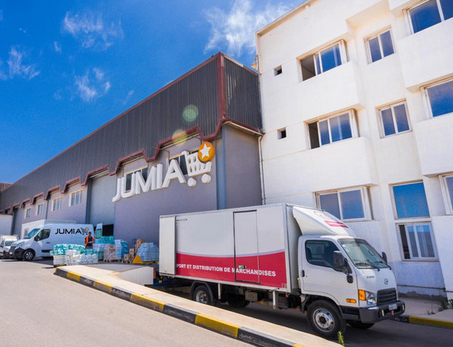In a strategic shuffle, Jumia, the eminent e-commerce titan of Africa, orchestrated a discreet workforce reconfiguration in Kenya and various other African markets this January. The unanticipated move followed the recent abandonment of Jumia Food, the company’s food delivery venture. However, the exact toll on the workforce remains shrouded in mystery.
A disgruntled Jumia employee took to Glassdoor on February 5, 2024, lamenting the lack of transparency: “News about layoffs was shared last week but no communication was made about who was affected and you’re still expected to work.”
This workforce adjustment comes on the heels of last year’s downsizing when Jumia axed 900 staff members, a cost-cutting measure aimed at steering the company towards profitability. Some employees found refuge in different roles within the company during the reshuffle.
Jumia, in a statement on Thursday as reported by TechCabal, shared insights into the motive behind the restructuring: “As we continue to review our investment and innovation in our operations, we are refocusing teams and resources on activities and projects to support our path to profitability.”

The e-commerce giant clarified that these organizational tweaks are part of a broader initiative to optimize capital and achieve cost efficiencies, echoing the norm for businesses striving for sustainability. Despite the workforce adjustments, Jumia remains sanguine about the future of e-commerce in Kenya and Africa, pledging to steadfastly provide services to consumers and vendors through its platform.
The gradual withdrawal from the food delivery business was a calculated maneuver for Jumia, with operations in Ghana, Senegal, and Egypt ceasing in early 2023. By the close of 2023, the curtains were drawn on the entire Jumia Food venture, and the app vanished from digital shelves. The decision was underlined by the acknowledgment that food delivery was unsustainable in the face of relentless competition from more aggressive players.
Jumia has been unwaveringly committed to cost discipline and operational cost reduction. The recently released Q4 2023 report indicates progress, with operational losses curtailed to $4.5 million for the quarter, complemented by cuts in advertising expenses.
However, challenges persist, with inflation and currency devaluation in key markets posing hurdles. Despite the headwinds, Jumia is resolute in its belief that continued cost discipline and positive indicators in other markets will pave the way to profitability. The e-commerce giant stands at the crossroads, navigating challenges while charting a course toward a promising future in the African e-commerce landscape.
A disgruntled Jumia employee took to Glassdoor on February 5, 2024, lamenting the lack of transparency: “News about layoffs was shared last week but no communication was made about who was affected and you’re still expected to work.”
This workforce adjustment comes on the heels of last year’s downsizing when Jumia axed 900 staff members, a cost-cutting measure aimed at steering the company towards profitability. Some employees found refuge in different roles within the company during the reshuffle.
Jumia, in a statement on Thursday as reported by TechCabal, shared insights into the motive behind the restructuring: “As we continue to review our investment and innovation in our operations, we are refocusing teams and resources on activities and projects to support our path to profitability.”

The e-commerce giant clarified that these organizational tweaks are part of a broader initiative to optimize capital and achieve cost efficiencies, echoing the norm for businesses striving for sustainability. Despite the workforce adjustments, Jumia remains sanguine about the future of e-commerce in Kenya and Africa, pledging to steadfastly provide services to consumers and vendors through its platform.
The gradual withdrawal from the food delivery business was a calculated maneuver for Jumia, with operations in Ghana, Senegal, and Egypt ceasing in early 2023. By the close of 2023, the curtains were drawn on the entire Jumia Food venture, and the app vanished from digital shelves. The decision was underlined by the acknowledgment that food delivery was unsustainable in the face of relentless competition from more aggressive players.
Jumia has been unwaveringly committed to cost discipline and operational cost reduction. The recently released Q4 2023 report indicates progress, with operational losses curtailed to $4.5 million for the quarter, complemented by cuts in advertising expenses.
However, challenges persist, with inflation and currency devaluation in key markets posing hurdles. Despite the headwinds, Jumia is resolute in its belief that continued cost discipline and positive indicators in other markets will pave the way to profitability. The e-commerce giant stands at the crossroads, navigating challenges while charting a course toward a promising future in the African e-commerce landscape.
